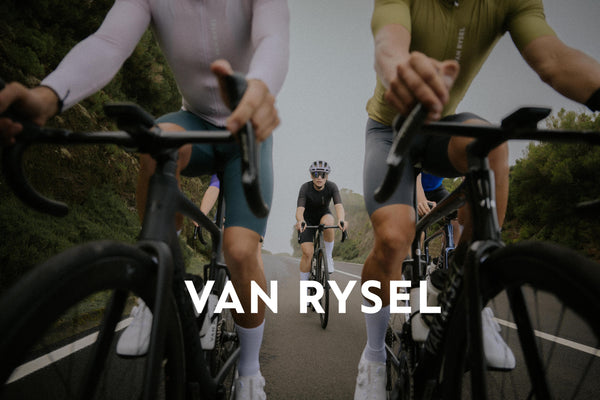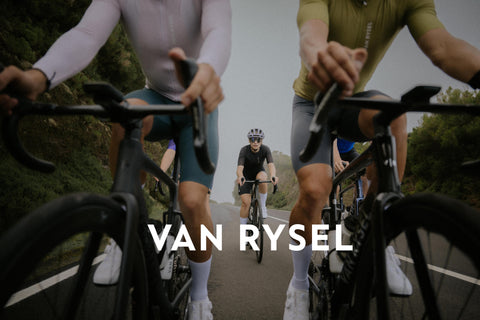Supply Chain Disclosure
California Supply Chain Transparency Act Disclosure
Effective as of: September 1 2024
Aligned with its core values of Responsibility and Generosity, Decathlon continuously works on managing the impacts of its activities and those of its business partners throughout the value chain, in order to respect human rights and the environment. For a complete overview of our commitments and actions, visit sustainability.decathlon.com.
Decathlon is strongly committed to observe and promote the Guiding Principles on Business and Human Rights (UN) and the Due diligence Guidance for Responsible Business Conduct (OECD) in its operations, both internally and with its business partners, including its manufacturing suppliers. The company's ethical and sustainable approach is reflected in several internal documents and processes, based on international standards such as the ILO Conventions and the UN Universal Declaration of Human Rights.
The California Transparency in Supply Chains Act (2010) requires large manufacturers and retailers to disclose their efforts to eradicate forced labor, human trafficking and slavery within their supply chains. Decathlon strives to tackle risks of modern slavery in the most efficient way, with the means and resources existent and accessible. In the event where it is found that a partner engages in any direct or indirect form of forced labor, Decathlon suspends its production and shipment with them. Below are the main actions undertaken by Decathlon to address abovementioned matters, and more information can be found in the company's annual Modern Slavery Statement.
Verification
Decathlon performs an annual risk mapping to highlight areas of focus. Included in this analysis are the social and environmental risks of both Decathlon’s own operations and those of its commercial partners and suppliers. Through its partnership with Verisk Maplecroft, Decathlon introduced in 2021 sectoral and geographical risk data on 15 environmental and social topics. Verisk Maplecroft assesses these topics using inter alia: corporate reports in the sectors ; media/ civil society reports of incidents, sanctions and violations ; political and judicial organization and level of corruption in the countries.
Decathlon also performed a specific country risk mapping on forced labor, more detailed and focused on the industrial sector. The analysis takes into account all procurement countries, which are the most risky, considering both internal and external data.
A set of frameworks, tools and means are put in place to manage the risks with Decathlon suppliers:
- Dormitory Guidelines, which help Decathlon’s suppliers understand the company’s requirements to guarantee a decent living condition for its employees. On this basis, dormitory facilities can be assessed through a dormitory Checklist, covering key points (living conditions & safety of workers, legal authorizations, freedom of movement, grievance mechanism and medical facilities).
- Ethical Recruitment Guidelines, for suppliers to prevent and tackle forced labor situations in their operations or through their brokers, notably concerning migrant workers. The document goes from the identification of a responsible intermediary/broker to the repatriation terms when there is a termination procedure. Decathlon is vigilant regarding risks associated with the recruitment process for migrant workers and pays special attention to legal authorization of manpower agencies.
Decathlon began assessing in 2022 a selected number of business partners through EcoVadis, an external non-financial evaluation platform. The assessment process includes the implementation and monitoring of action plans for the environment, human rights (including forced labor), ethics and responsible procurement.
Audits
As the industry is a particularly risky sector, a specific in-depth process was developed regarding direct purchases to assess the human rights and health & safety situation on Decathlon’s suppliers’ sites. These audits are conducted by internal teams and by external specialized auditing companies. These assessments follow a grid, the Human Responsibility in Production audit grid (based on the SA8000 standard), and are conducted with suppliers before the start of their business relationship with Decathlon. After that, a review is conducted on a regular basis, depending on the countries’ risk levels.
Following Decathlon’s Code of Conduct for manufacturing suppliers (see below), Decathlon assessment includes verification on modern slavery and child labor issues. Audits results are structured in risk management levels ranging from E to A, and then processed on a corporate level by strategic buyers, and on local level, by business and sustainability teams. The aim is always to work with the suppliers on an action plan in a continuous improvement approach.
The Apprise Audit app (facilitation workers' interviews) is used in an increasing number of sites during the HRP audits. Decathlon is working towards developing the use of this tool in each production site to better use the data.
Certification
Decathlon established two codes of conduct, displaying the company's commitments and requirements regarding human rights matters at work, including elements on forced labor, child labor, discrimination, physical/ mental health & safety, freedom of association and decent wages (it also includes elements on environmental risks). The documents aim at making Decathlon’s minimum standards clear and known to its business partners, to ensure their respect on the production sites, and to enable compliance assessments.
Two codes were developed to adapt to the type of partner: for manufacturing suppliers, the Code used is very detailed on the elements listed above, and is incorporated in the purchasing agreement which identifies and lists the production sites used to manufacture Decathlon products ; for other business partners, the Code used is more succinct, as it is covering many different sectors (less risky regarding modern slavery matters).
Internal Accountability
Several internal documents make Decathlon's standards applicable to its employees as well, both based on international human rights and environmental protection laws:
- Human rights policy, which publicly marks Decathlon’s commitment to respect internationally recognized human rights standards, and sheds light on the company’s strategy to promote their application in the way it conducts its activities
- Global Code of Conduct (internal), which displays the ethical behavior expected of all Decathlon employees and those working on its behalf.
In order to report a problematic situation (including on human rights and forced labor), Decathlon set up an anonymous and securitized alert system, which can be used by various stakeholders in the business ecosystem: employees, workers, customers, NGOs, communities, civil society, etc. The alert tool has been deployed in more than 60 countries and regions in the local language(s).
An alert management procedure was developed in order to treat the alerts received in a timely, independent and effective way by the persons in charge.
Training
Decathlon collaborated with several NGOs to provide a qualitative training to address modern slavery risks in its value chain:
- with Stronger Together, an e-learning on “Tackling forced labour in global supply chains” (as well as a toolkit from the Responsible Sourcing Tool) ;
- with Mekong Club, four modules for both internal teammates and Decathlon’s suppliers on modern slavery ;
- with Dignity and Work for All, to upskill its forced labor referents (selected experienced assessors) in order to detect and deal with critical issues related to forced labor ;
- Decathlon also provides a webinar on “ILO indicators of forced labour” aimed at the company’s key actors in production countries, to help identify problematic cases in the manufacturing sector.
Issues related to forced and bonded labor were incorporated in the training "Sustainable development in production” received by production teams. In addition, operational production managers for sustainable development (local recruits understanding both suppliers’ stakes and national context) help them identify and address local issues.
Industrial strategic buyers are trained during their induction period on the respect of human rights and the prevention of modern slavery.















